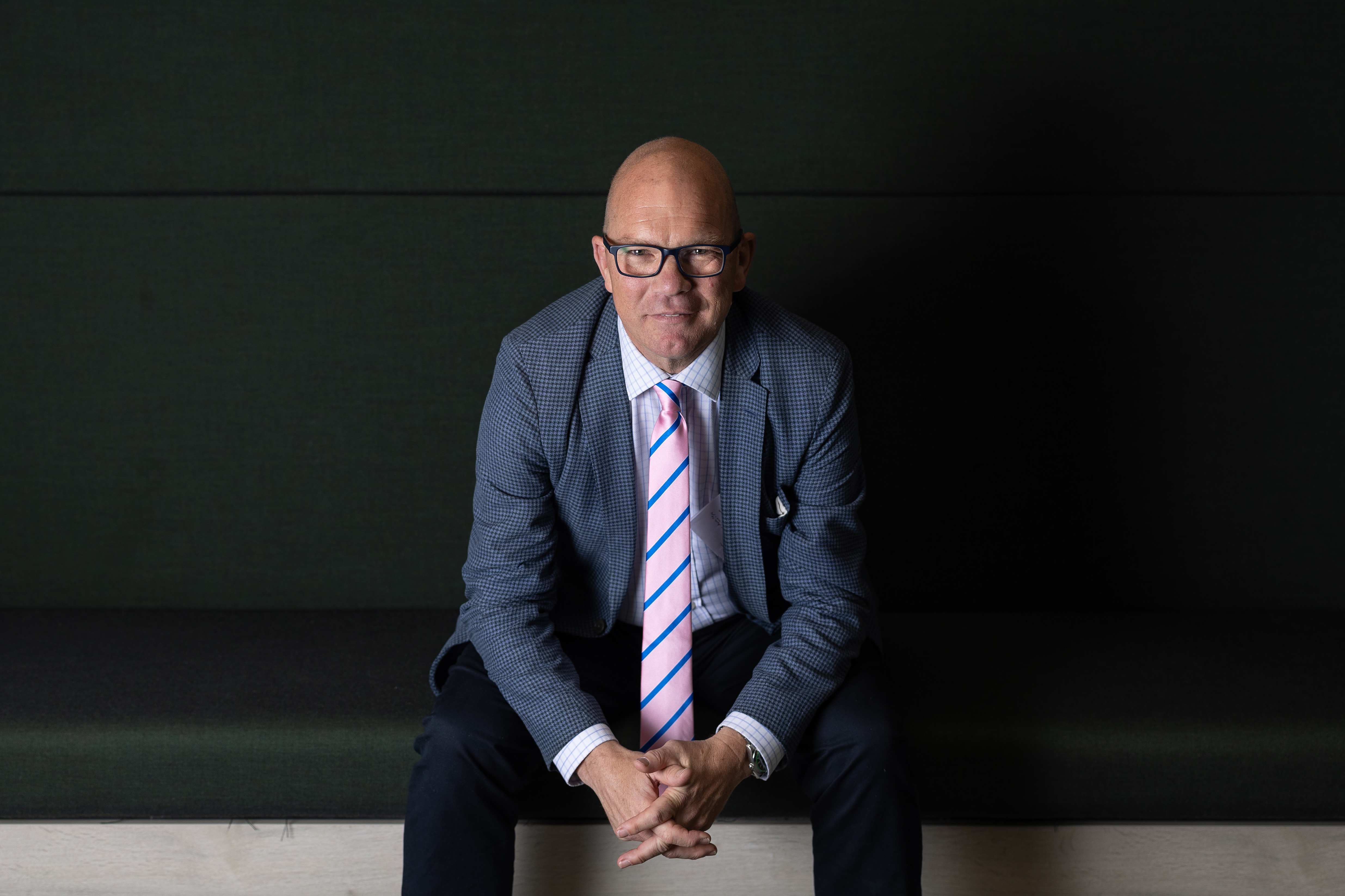Joshua Hebert, CEO and founder of Magellan Jets, believes lifestyle focused strategies will be key to success in China’s increasingly deregulated private aviation sector

Joshua Hebert, CEO and founder of Magellan Jets, believes lifestyle focused strategies will be key to success in China’s increasingly deregulated private aviation sector
Joshua Hebert, CEO and founder of Magellan Jets, believes lifestyle focused strategies will be key to success in China’s increasingly deregulated private aviation sector.
It’s been said many times – even right here on Luxury Society – that when it comes to flying private, there’s no faking it. Private aviation has come to represent a beacon of unquestionable luxury in an industry unashamedly courting the middle class. Where luxury fashion, accessories, timepiece and automotive brands have opened themselves to aspirational consumers, flying private has largely remained the privilege of the truly affluent.
The business jet industry is expecting 2012 to mark its first year of growth in deliveries since the financial downturn, as corporate profits run at record highs (Reuters). Emerging wealth in India and China, alongside the incremental deregulation of the latter’s airspace, has fuelled optimism about the sectors growth potential, despite concerns about the U.S. and European economies.
And the industry has unquestionably increased in sophistication since the private bubble burst in 2008, when jet prices plunged 30% to 50% (WSJ) and operators witnessed a 40-60% decrease in business throughout the industry. Rising from the doom and gloom of recession, the private jet industry went on to introduce more thoughtful business models for flying private, seeking to minimise the risks, costs and complexities associated with directly owning a private jet.
“ Emerging wealth and deregulated airspace in India and China has fuelled optimism about the sectors growth potential ”
Former Wall Street executive, Joshua Hebet, was one such entrepreneur who identified the market’s potential back in 2000, when he began actively researching the private aviation sector. “Once security measures were heightened due to the terrorist attacks, there was undoubtedly a need for technology in private aviation,” he explains. “I felt it was the next big industry to get into.”
With that Joshua went to work for Charter Auction, an online exchange for jet charter pricing, utilising aircraft locater technology to make private jet charter affordable for executive travellers. Eventually he launched Jets.com, with partners Anthony Tivnan and Gregory Belezerian, where they helped grow the business to revenues of $42 million in just two years.
After bringing in two rounds of funding, Joshua then sold his part in the company and in 2008 – again with Anthony – founded Magellan Jets, where he has since served as CEO. The business jet chartering service commands access to thousands of private aircraft around the world and can arrange charters with just 10 hours notice, through its dedicated concierge and flight service team on call 24 hours a day, 365 days a year.

A custom screening room within film director Tyler Perry’s Gulfstream III
Joshua concedes that, at first glance, all top-level private jet membership programs may seem similar as their pricing, presentations, and fees are often comparable, yet he is confident that the total experience for clients is where the similarities end.
“There are a handful of things that differentiate us from our competitors,” offers Joshua. “Our flight support and concierge department is something most other companies don’t have, and our safety standards are well above the FAA requirements. We use a third party organization called Wyvern who vets our operators on a number of levels. We also have a fixed cost program for our customers that will never go above their set hourly rate and has the ability to reduce their cost based on the charter market . We always try to achieve the maximum value for our members.”
“The reason we find the broker side to be beneficial for our clients, is that we do not believe in owning the assets. We want to help people who own the planes bring their operating costs down by allowing Magellan Jets to use their planes when they are not using them. As a result, this allows the charter user to avoid having to make a greater financial commitment. They can essentially pay as they go.”
“ Clients are a mix of CEOs, financial and technology tycoons, dignitaries and A-level actors, musicians and athletes, between the ages of 35 & 85, who on average make over $5 million a year. ”
‘They’ generally consist of a mix of CEOs, financial and technology tycoons, dignitaries and A-level actors, musicians and athletes, between the ages of 35 and 85, who on average make over $5 million a year. But with the emergence of new centers of wealth, and as various economies plummet and prosper, this mix is constantly evolving.
“A large part of our business is companies doing road shows, which are typically trips that hit multiple destinations over a short period of time, ranging from musicians on tour to major corporations executing time-sensitive business deals. We are also increasing our client base in hedge funds and finance, whilst experiencing tremendous global growth from Europe and China. We are also starting to see the tech market come back from the .com boom.”
“More recently the downgrade of bonds did frighten people, though not to the extent that we thought it was going to, but it did affect our market. The market from 2008 has come back (estimated 65%, and growing). Right now, we are seeing the market continue to grow; the private jet market is making a huge comeback.”
A private office within Airbus’s A318 Elite
And one of the keys to its comeback undoubtedly lies in the East. China’s tightly controlled skies and cumbersome regulations had traditionally stifled the development of a market for private jets, but regulatory changes and an increase in infrastructure is feeding hopes among jet manufacturers and brokers that the market is finally poised for take-off (NYTimes). Private jet facilities have now been launched in Beijing, Shanghai and Shenzhen.
In August 2011 Magellan Jets announced its first expansion into the Chinese market, with the launch of its Cultural Educational Charter Service. The only of its kind in the industry, the service sees not only to the transport of Chinese students to the U.S. for higher education, but provides assistance with consultations for U.S. Visa Applications, as well as housing, security, transport and any other purchase requests.
“When researching the amount of wealth in China, I saw large demand, very little supply and too few airports,” reveals Joshua. “We immediately decided that China is a market we want to be in. Since the regulations have been lifted, the Chinese have been bombarded by people seeking private travel options but they have not had time to create the flight following department that Magellan has in place."
“ When researching the amount of wealth in China, I saw large demand, very little supply and too few airports. We immediately decided that China is a market we want to be in ”
“The opportunity presented itself to us, as the space in which was in most desperate need for our services; private travel and aiding Chinese students in understanding the American culture, and helping them get situated once they landed in the U.S.”
Unsurprisingly, Joshua sees China playing a huge role in growth in the coming decade and will continue to focus on the ‘lifestyle’ angle in this market ripe for capitalisation. Magellan Jets has since launched dedicated charter services for high rollers and businessmen, flying from all points throughout Asia to gaming destinations including Macau and Las Vegas. The bespoke package promises the utmost discretion, privacy and efficiency in travel.
“The Chinese culture demands service, I’ve found that problems are expected to be addressed immediately. Business is done based on relationships and respect in China and to build these, you need to be fully immersed in Chinese culture.”
To further investigate Private Aviation on Luxury Society, we invite your to explore the related materials as follows:
– Targeting the Truly Affluent: Jim Kerwin, The Private Journey
– Executive Aviation’s New Highs & New Lows
– Hainan Rendez-Vous & the Chinese Riviera










